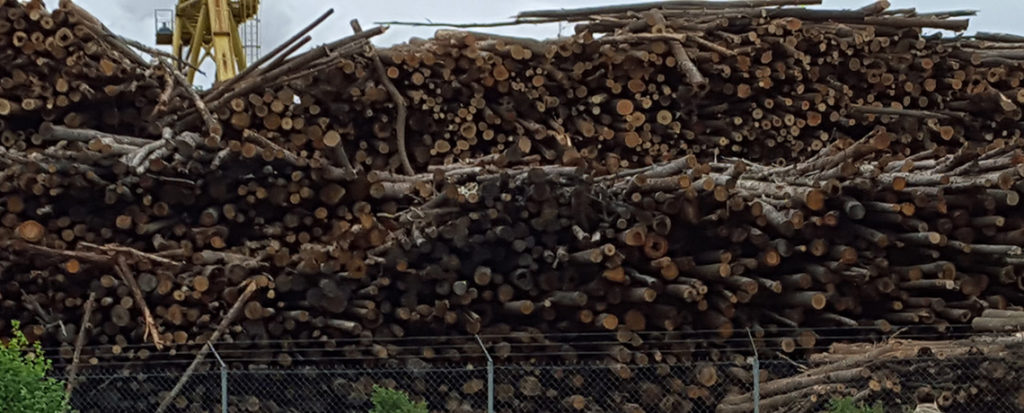
Via Dogwood Alliance
Despite industry talking points, wood energy is not environmentally friendly. Burning wood for electricity, wood-based liquid transportation fuels, biochemicals, bioplastics, bioproducts, are all part of an envisioned “bioeconomy”.
“This report confirms once again that cutting down trees and burning them as wood pellets in power plants is a disaster for climate policy, not a solution,” said David Carr, General Counsel of the Southern Environmental Law Centre in the US, in a recent BBC piece by Matt McGrath.
The many environmental and societal problems associated with biomass and tree plantations will only be made worse by schemes to create tree plantations out of resource sapping genetically engineered trees.
Using wood pellets to generate low-carbon electricity is a flawed policy that is speeding up not slowing down climate warming.
That’s according to a new study which says wood is not carbon neutral and emissions from pellets are higher than coal.
Subsidies for biomass should be immediately reviewed, the author says.
Energy from trees has become a critical part of the renewable supply in many countries including the UK.
Critical role
While much of the discussion has focused on wind and solar power, across Europe the biggest source of green energy is biomass.
It supplies around 65% of renewable power – usually electricity generated from burning wood pellets.
EU Governments, under pressure to meet tough carbon cutting targets, have been encouraging electricity producers to use more of this form of energy by providing substantial subsidies for biomass burning.
However this new assessment from Chatham House suggests that this policy is deeply flawed when it comes to cutting CO2.
According to the author, current regulations do not count the emissions from the burning of wood at all, assuming that they are balanced by the planting of new trees.
